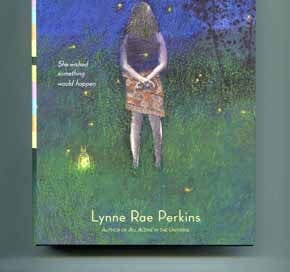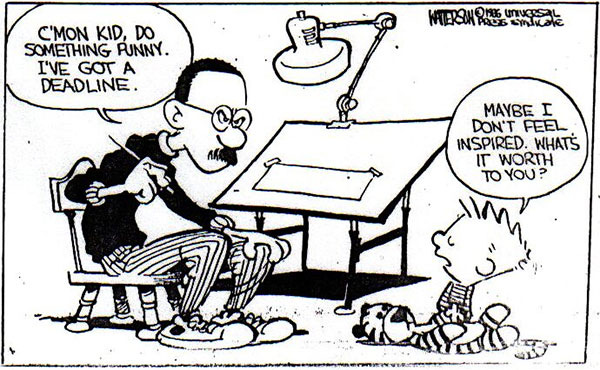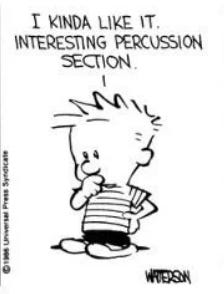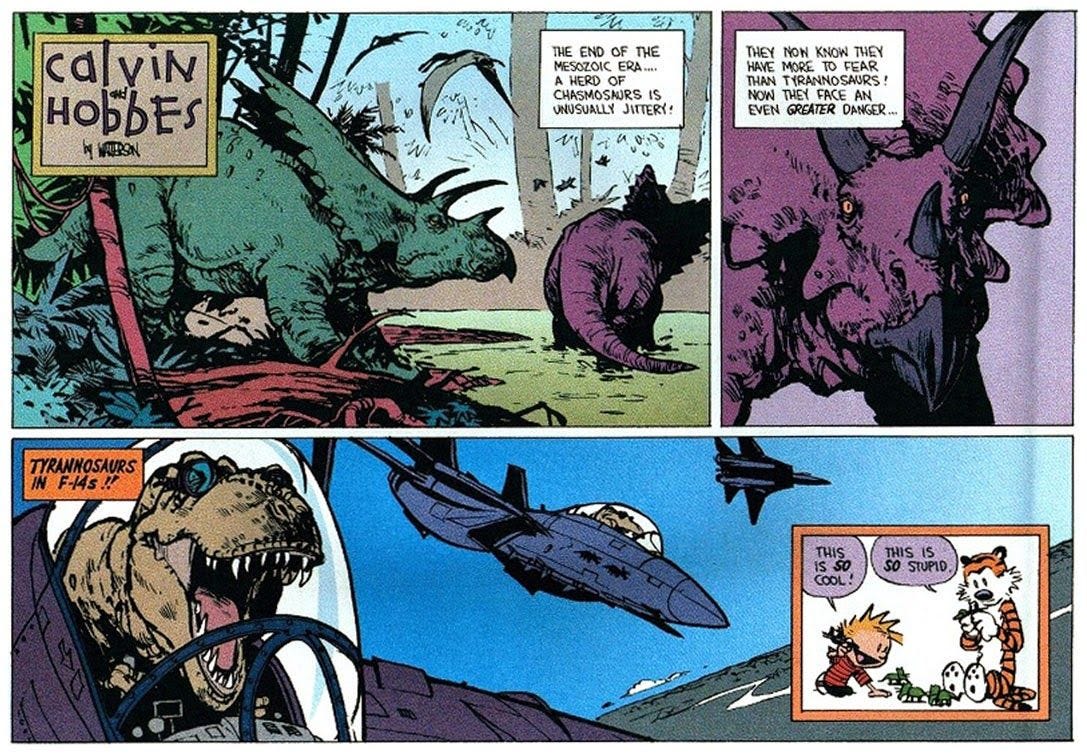“There’s never enough time to do all the nothing you want.”
-Calvin
Okay, let’s start by talking about the sick, borderline cruel irony of using “she wished something would happen” as the opening line of a novel where basically nothing happens. Criss Cross by Lynn Rae Perkins fits perfectly into the mid-2000s class of Newbery medalists, the one that had literary critics starting to wring their hands at the state of medal-giving: while Criss Cross is unquestionably beautifully written, nothing happens in this book, and it is extremely difficult for me to imagine any middle grade reader finding this a compelling or even halfway interesting read. Again, some of the prose passages in this book are stunning in terms of the images that Perkins employs and the wistful feelings she was able to ruffle up in me, but in the first 100 pages the most interesting thing that happens is that a girl gets a pair of bell-bottom jeans. You can find “variegated” and “prostheses” and “crenellated” all on the same page (170 in my edition) so the vocab lessons are built right into this book, but “the vocab lessons are built right into this book” is usually not a strong selling point for young readers.
And look, I get what Perkins is trying to do here. The book is kind-of-sort-of supposed to be about nothing happening, to drive home the point that when nothing happens, actually, everything is happening. This is water all over again. At one point, a character says “I think it can count. I think everything counts.” The final image of the book is someone opening a jar of fireflies on a summer night: “Someone opened the jar. The lightning bugs knew what to do. They flew out into the night air, every last one. Blinking, ‘Here I am.’” GET IT? IT’S ABOUT HOW WE AFFIRM LIFE EVERY DAY EVEN THROUGH OUR OWN QUOTIDIAN STRUGGLES. Perkins was apparently preparing a new generation of readers to grow up and really appreciate Richard Linklater movies, which, sure, isn't necessarily a bad thing to do, but this is one of the most "clearly for a target audience of wistful adults instead of precocious children" Newbery medalists that I've read. The two teens who are supposed to end up together don't end up together, instead they listen to a song outside and we get the omniscient narrator meta-interjecting herself into the novel to be like "ah yes life is a puzzle and yet we affirm it", a message no sixth grader is interested in reading:
"The song was so old, but it was such a new, real feeling. They sang it together, but their thoughts went off to different places, to different people. Maybe the wrong places, the wrong people. How did anyone know? Mistakes would have to be made. Maybe a lot of mistakes. It was okay. They can’t hear me, but I want to tell them it’s okay, they’re doing just fine."
But don't worry, sixth graders also get the affirming message of "adult life is a prison":
"The cashier laughed. She said, “I used to play with a toy cash register when I was little, too. And see? My dream came true.” She was entirely pleasant and cheerful saying this and yet, there was some other kind of knowledge in it, too. A knowledge that it sure as hell wasn’t her dream come true, but, oh well, here she was."
Again, the passages I'm sharing with you represent maybe 90% of what "happens" in the "story". And this is good and evocative and emotionally resonant writing, but it's all for the wrong audience. Yes, an adult reader would find something in the two leads not ending up together but the narrator saying that they’re okay, and an adult reader would think about the cashier’s underlying regret, but if a kid is choosing between this book and, I don’t know, a dystopian nailbiter or a tale of Boston in revolt or a witty murder mystery or a comedy about a grouchy grandma or, heck, even some funny poems about bugs, there’s no reason they would want to pick this up, and there’s nothing in here that would turn them on to reading, nothing here that would make them say “wow, are there any other books I could check out where someone goes to two guitar lessons and then buys an ice cream cone”? It’s not the first time we’ve seen this sort of tension in a Newbery medalist; the books that win the medal are ostensibly for smart bookish children, but the people who give out the medal are smart bookish adults who are part of the librarian trade group so they’ve read far more books than any child. So sometimes, they misfire, and they give the medal to a book that seems written more for the adults judging the books than a child that would read them. I think this is what happened with The Tale of Desperaux two years prior, and to Kira-Kira the year prior. You have to pitch to the smart kid, not the wistful adult. Only one author ever got the balance one hundred percent correct: Bill Watterson.
I have very little to say about Bill Watterson and Calvin and Hobbes that hasn’t already been said a hundred times: you already know that Calvin and Hobbes was one of the most successful syndicated newspaper comic strips of all time, you already know that Watterson doesn't like media attention and that the photo above is one of very few of him that’s available anywhere, you already know that Watterson gave up millions and refused to license or merchandise his characters and threatened to walk away from the strip when his publishers tried to pressure him to do so, you already know that Watterson repeatedly pushed the artistic limits of newspaper comics with his sweeping landscapes and grotesque details, and that he used his clout to successfully push for more flexibility in his page space than the standard newspaper comic panels would allow, you know that he ended his comic strip after ten years (Cathy ran for almost forty, and Dilbert could have run for forty if not for, you know, the other stuff that guy did1) by writing a letter to newspaper editors indicating that he had achieved everything that he could in his limited medium, and you might know that he had another book come out in Fall 2023, his first major post-Calvin work.
But I have a very small personal story about Calvin and Hobbes that I’d like to share: every day of grade school, from first grade through eighth, when I ate my lunch, I had a Calvin and Hobbes strip that I would read. This is because my public librarian mom would take the comic strip collections that the newspaper syndicates would publish every year - and this being Calvin and Hobbes, they had titles like Something Under The Bed Is Drooling or Attack Of The Deranged Mutant Killer Monster Snow Goons - and use the work photocopier and paper cutter to grab stacks of these strips and drop one into my lunch box every day, because my family more broadly was a fan of the strip. My dad, who is a drummer, even used to have a (unlicensed/unauthorized) t-shirt with this panel on it2:
Saying that Calvin and Hobbes is my favorite comic strip does not make me a very interesting person - there’s a broad consensus that it’s one of the best in the history of the medium - but know that it’s because of this small and nice thing that my loving mother did when I was in grade school. I still love Calvin and Hobbes of course, because who couldn’t, and I’ve since purchased the full deluxe box set even though I also had most of the old treasuries, and I still read it and it makes me laugh, and I read some of them to my daughters today, although they most appreciate the visual ones without dialogue, also I don’t think they’re quite ready for the “Snowman House of Horror” strip:
That one is more for the older kids. But here’s the thing: there are plenty of strips for the younger kids. I read these every day when I was six, and they made me laugh out loud then, and they make me laugh out loud now, and I quoted them incessantly to my family for seven years and looking back on it all, I’m not sure why my parents didn’t suffocate me in my sleep3. When you’re an adult, you marvel at Watterson’s alien landscapes and deep philosophical musings and his snot-nosed protagonist who also cares deeply about the environment and his independence as a kid. And when you’re a kid, yeah! The art is still stunning, and you laugh at Spaceman Spiff’s deliberately overwrought dialogue, and you identify with a kid who doesn’t have any close friends except his stuffed tiger, and hey wait a second, yeah, why are the grown-ups all treating the world like a garbage dump, and why aren’t you allowed to do all of the nothing that you want? Maybe those are questions you ask as a kid and then as an adult, and maybe there’s a way to present childhood in an authentic way that doesn’t feel like a three-hour Ethan Hawke movie playing the festival circuit - a genre of movie that I generally enjoy, but not for my children’s novels!
Look, the comparison here isn’t exactly fair, we’re dealing with two very different authors in two very different media in two very different eras of publishing. But I’m saying that there’s media you pass off as a kid’s book that you really wrote for adults that includes ten-dollar words and winking references to “hey you’re an adult remember how you hate your day job?”, and then there’s the rare piece of media that works perfectly for both audiences. I’ll leave you with one famous Watterson strip, one where Watterson pulls it all off, as he often does, by playing around in Calvin’s imagination. The artwork in Calvin’s daydreams are far more detailed than the usual cartoonishness of the “real world”, which Waterson details brilliantly and beautifully here, in artwork that is stunning for an adult or a child reader. He has one simple joke, based on a mock-documentary narration that takes an abrupt, blunt, hilariously stupid left-turn that could only come from the mind of a six-year-old who is ahead of the curve in all of the wrong ways. And he ends with a smash cut back to reality that nails the relationship between the two main protagonists. I give you Watterson’s masterpiece, “Tyrannosaurs in F14s”:
Newburied is a series by Tony Ginocchio on the history of the Newbery Medal and a whole bunch of other stuff related to it. You can subscribe via Substack to get future installments sent to your inbox directly. The next installment will cover the 1927 medalist, Smoky The Cowhorse by Will James.
Imagine still having a syndicated comic strip in 2023, a job that basically doesn’t exist anymore, and voluntarily blowing it.
For context, Calvin is reacting to the canons in Tschiakovsky’s 1812 Overture
For this and, to be clear, zero other reasons.








